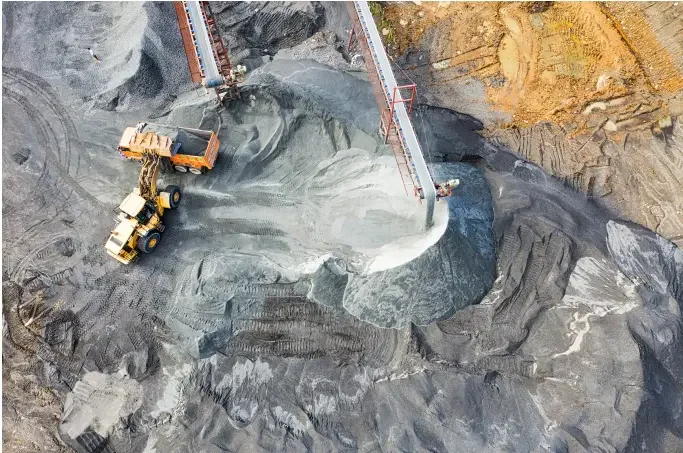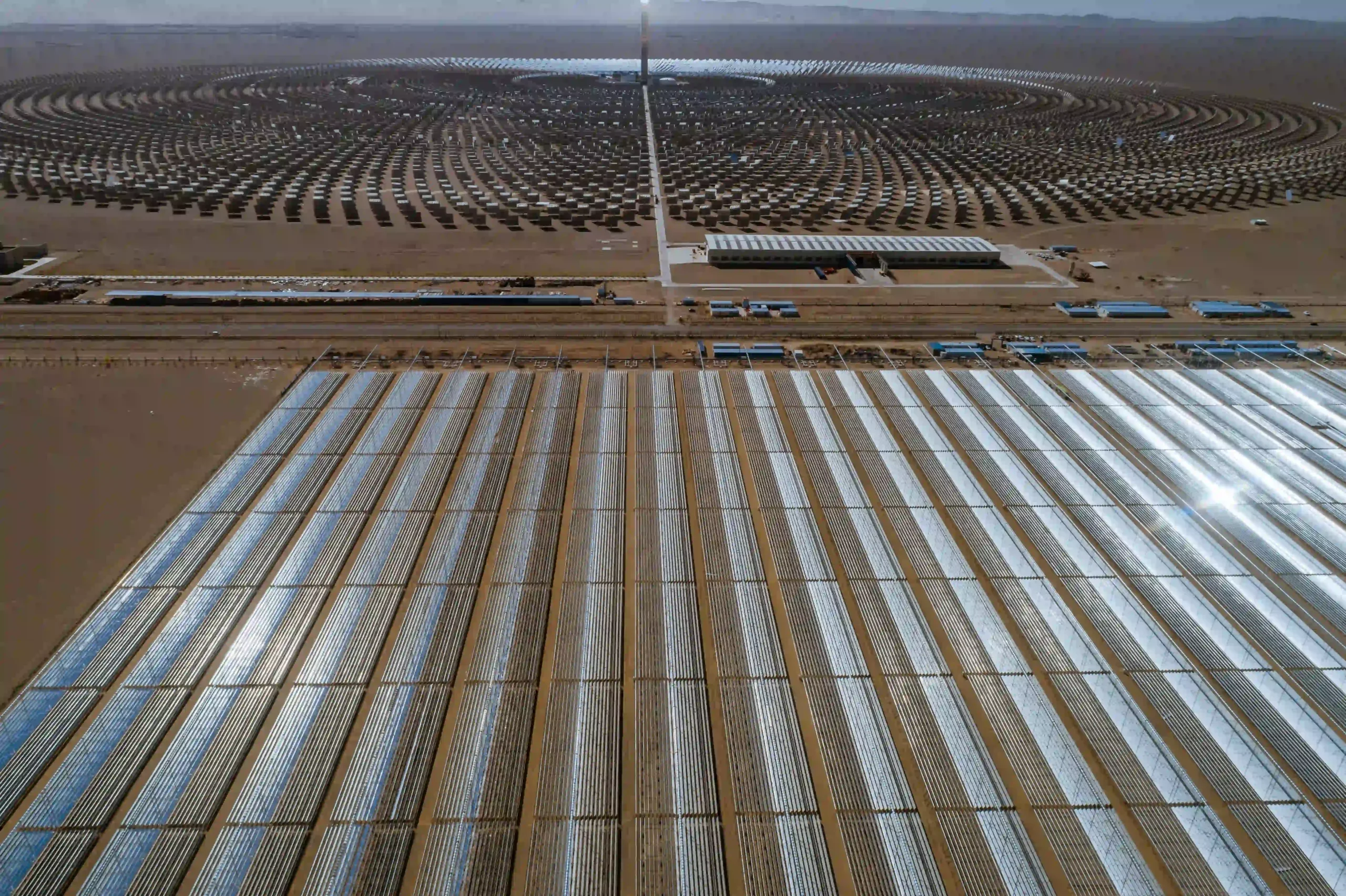China believes that Taiwan is an inalienable part of China and that Taiwan is part of its territory and routinely threatens to invade it to prevent Taiwan's formal independence. On Saturday 18th of February 2023, China's top diplomat Wang Yi said, at the Munich International Security Conference: "Taiwan has never been an independent country, nor will it be an independent country in the future. This is the status quo of the Taiwan issue”. As greater and more aggressive Chinese military exercises outside Taiwan become the norm, there are rising concerns of a full-blown cross-strait crisis with severe military and far-reaching economic repercussions for the global and Chinese economy. A China-Taiwan conflict will have a worse effect than the Russia-Ukraine war given the economic and industrial power that the two countries possess.
Economic Impacts of a China-Taiwan Conflict on the Global Economy
Taiwan’s Semiconductor Sector, the Global Economy, and the Impact of its Disruption
Taiwan’s GDP increased to $775 billion in 2021, with imports and exports totalling $922 billion. Taiwan’s economic growth over the previous few decades has been substantial. In addition, it has one of the greatest per capita GDP and is the 22nd largest economy in the world, controlling between 60 and 65% of the global semiconductor chip market. Intriguingly, all countries, including China, rely on Taiwan for their semiconductor requirements.
Indeed, the majority of this foreign investment is drawn to Taiwan’s electronics industry. The significance of Taiwan to the global semiconductor industry cannot be overstated. At $600bn, Taiwan Semiconductor Manufacturing Firm (TSMC) is the world’s largest contract chip manufacturer and Asia’s most valuable publicly traded company. Taiwan is relying on it for the majority of the global semiconductor supply chain. A closer look at greenfield foreign investment projects in Taiwan reveals that the electronics sector garnered the majority of inward investment in 2019 and 2020.
Taiwan is a crucial link in global technology supply chains. Taiwan, whose economy is likewise highly connected with those of Japan, South Korea, and the United States (US), is by far the world’s largest producer of processor chips, which are becoming increasingly prevalent in new goods. It has double the market share of the second-largest producer, and its dominance at the high end is considerably greater, with 90% of the most advanced semiconductors manufactured by TSMC. TSMC controls around 55% of the global contract chip fabrication business. Each year, Taiwan produces approximately one-third of the additional processing power we rely on. Indeed, according to Taiwan’s Ministry of Finance, exports of IC chips, which are essential components of electronic appliances, computers, and smartphones, increased by 18.4% from the previous year. It was also the third consecutive year of double-digit expansion. In 2022, for the seventh year in a row, Taiwan’s exports of integrated circuit chips increased, further strengthening the country’s leadership position in the global semiconductor sector, which has been roiled by US-China tensions and changing supply chains.
This represents a risk for the global economy. Even if a full-scale conflict were to be averted, a military blockade of the island would still create a significant economic shock to the global economy, as it would lead to recurrent shortages in the automobile and electronics industries and increase inflationary pressure. Indeed, if Taiwan’s semiconductor supply were interrupted for an extended length of time, electronics and automobile manufacturers would struggle to locate other sources, causing many companies to cease production. It takes two to three years to build a semiconductor plant from scratch, and replacing lost manufacturing capacity would be prohibitively expensive — a new semiconductor factory costs tens of billions of dollars and is extremely knowledge-intensive. In the event of a conflict, the overall cost of semiconductor scarcity would reach trillions of dollars. Indeed, losing access to Taiwanese chips would very certainly result in a huge economic shock for China’s manufacturing sector and the overall economy.
Impact on Direct Investment and Trade
A conflict would also have an effect on direct investment to and from Taiwan. Taiwan invests over $18 billion annually abroad, and in 2021, foreign multinational corporations repatriated approximately $22 billion from Taiwan. These flows and foreign assets in Taiwan, including $127 billion in direct investment, could be put at risk by a conflict. Furthermore, given the nature of China’s imports, it is reasonable to anticipate that demand for commodities from China would decrease significantly, placing pressure on the currencies and balance sheets of the exporters themselves. The shock of China’s declining import demand might push additional emerging and developing economies to the verge of collapse in an environment where debt levels in these markets are already high and most of the developing world is under financial stress. Due to China’s vital position in regional value chains, trade disruptions caused by a conflict would also have a direct impact on China’s Asia-Pacific trading partners. For instance, nearly 14% of Vietnam’s export value is attributable to Chinese imports of intermediate goods. The percentage is comparable for Cambodia (13%), Hong Kong (9%), and Mexico (7%). Delays in China’s supplies of essential intermediate items might result in production slowdowns and revenue losses.
In addition, a conflict would have significant worldwide repercussions on China’s commerce and domestic performance. China’s demand for global inputs would decrease due to a weaker currency rate, disruptions in export manufacturing, and declining domestic consumption. Further, countries across the globe would face the possibility of soaring inflation and shortages in crucial industries. This would include crucial infrastructural components like medical and telecommunications equipment as well as less strategic but no less necessary equipment such as harvesting or mining commodities with the power to disrupt regular businesses in many economies. All of these factors could enhance the likelihood of a global economic recession, sustained inflation, widespread sovereign defaults, increasing unemployment, and potential social unrest.
Last, according to figures provided by Bloomberg, half of the worldwide container fleet and 88% of the world’s largest ships by tonnage went through the Taiwan Strait during 2022. Hence, any prolonged attempt to impede international commerce from Taiwan would harm global trade and cause significant disruptions in Taiwan’s trade with the rest of the world, as well as global supply chains.
Economic Impacts of a China-Taiwan Conflict on the Chinese Economy
The repercussions of a conflict don’t only affect the global economy but the Chinese economy as well since China and Taiwan’s economies are inextricably linked. China is Taiwan’s largest export partner, with $110bn of exports from Taiwan in 2022, nearly 40% more than that of the US, Taiwan’s second-largest export partner, making Taiwan very important to the Chinese economy and vice versa.
In conclusion, a China-Taiwan conflict wouldn’t do any good for the global economy as it would lead to its crash, since resources, supply chains and components would dry up, and the consequences for all would be horrible, especially for China. Further, the importance of Taiwan for the global economy will lead to the intervention of its allies, i.e, US, one of its strategic partners, and we might find ourselves in front of a new cold war warning and it’s hard to tell how it will be resolved.
References
Significance Of Taiwan; Why The Tiny Island Matters So Much? [Internet]. [cited 2023 Apr 26]. Available from: https://www.india.com/news/world/significance-of-taiwan-why-the-tiny-island-matters-so-much-5556812/
Why is Taiwan so important to China? Investment Monitor [Internet]. [cited 2023 Apr 26]. Available from: https://www.investmentmonitor.ai/special-focus/ukraine-crisis/taiwan-matters-china-semiconductors-russia/
Taiwan Still Dominates Chip Industry, Despite Geopolitical Turmoil | Data Center Knowledge | News and analysis for the data center industry [Internet]. [cited 2023 Apr 26]. Available from: https://www.datacenterknowledge.com/hardware/irreplaceable-taiwan-still-dominates-chip-industry-despite-geopolitical-turmoil
The Chips That Make Taiwan the Center of the World | Time [Internet]. [cited 2023 Apr 26]. Available from: https://time.com/6219318/tsmc-taiwan-the-center-of-the-world/
What would be the economic cost of a full-blown Taiwan crisis? | The Japan Times [Internet]. [cited 2023 Apr 26]. Available from: https://www.japantimes.co.jp/news/2022/08/16/business/taiwan-crisis-economic-impact/
The Global Economic Disruptions from a Taiwan Conflict | Rhodium Group [Internet]. [cited 2023 Apr 26]. Available from: https://rhg.com/research/taiwan-economic-disruptions/
Hacioglu Hoke S. Macroeconomic Effects of Political Risk Shocks. SSRN Electronic Journal [Internet]. 2019 Dec 23 [cited 2023 Apr 26]; Available from: https://papers.ssrn.com/abstract=3508664
How rising tensions across the Taiwan Strait could threaten global trade | Financial Times [Internet]. [cited 2023 Apr 26]. Available from: https://www.ft.com/content/68871ec9-6741-4e0a-8542-940152df4e36
China-Taiwan trade, and everything you need to know | South China Morning Post [Internet]. [cited 2023 Apr 26]. Available from: https://www.scmp.com/economy/china-economy/article/3187890/china-taiwan-trade-and-everything-you-need-know
A Taiwan Invasion Would Cost China Dearly [Internet]. [cited 2023 Apr 26]. Available from: https://www.forbes.com/sites/miltonezrati/2023/01/02/a-taiwan-invasion-would-cost-china-dearly/?sh=7cab361e7037
Chinese Companies Listed on Major U.S. Stock Exchanges | U.S.- CHINA | ECONOMIC and SECURITY REVIEW COMMISSION [Internet]. [cited 2023 Apr 26]. Available from: https://www.uscc.gov/research/chinese-companies-listed-major-us-stock-exchanges
China’s economic cost of invading Taiwan – Lexology [Internet]. [cited 2023 Apr 26]. Available from: https://www.lexology.com/library/detail.aspx?g=69f91b47-dcf6-419a-b676-0ce5c7313bdd













Comments